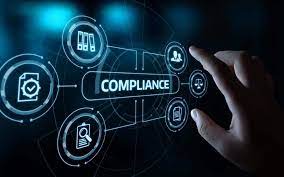Regulatory intelligence plays a crucial role in today’s business landscape, where regulatory requirements are constantly evolving. Staying ahead of these changes is not only essential for compliance but also offers a competitive advantage. I recently had the opportunity to visit with Caroline Shliefer, founder and CEO of RegAsk, on the topic of AI and emerging technologies enhancing regulatory intelligence and compliance. RegAsk has a tagline that states, “Empowering Smarter Regulatory Decisions Curated Regulatory Intelligence Augmented by AI.” It is certainly that and much more.
Caroline Shliefer is a seasoned professional with a rich background in healthcare, law, and regulatory affairs, boasting a PharmD PhD and a health law degree. Her perspective on emerging technologies enhancing regulatory intelligence and compliance is shaped by her extensive experience in the EU, US, and Asia and her role as the founder of RegAsk, which leverages technology to address compliance challenges. She believes that technologies such as AI, machine learning, blockchain, and data analytics are revolutionizing regulatory monitoring, enabling faster and more accurate interpretation of regulatory information, and fostering a more proactive approach to compliance. Her goal with RegAsk is to digitize and streamline the regulatory intelligence process, reducing the risk of non-compliance and fostering innovation.
Regulatory intelligence involves the systematic collection, analysis, and dissemination of information about regulatory requirements, policies, and guidelines that impact product development, manufacturing, and distribution. Traditionally, this process has been manual and challenging, requiring businesses to collect information from various sources and analyze it accurately. However, emerging technologies such as artificial intelligence (AI), machine learning, blockchain, and advanced data analytics are revolutionizing regulatory monitoring and compliance.
AI and machine learning are transforming regulatory monitoring by enabling swift and accurate interpretation and analysis of regulatory information. These technologies can track regulations across different jurisdictions and provide predictive analytics, reducing manual workload and mitigating human errors. By leveraging AI, businesses can anticipate regulatory changes and define various scenarios, allowing them to be prepared and gain a competitive advantage. As Caroline Shliefer, the guest on the podcast, highlighted, being proactive and understanding the small signals that can lead to new regulations is crucial for success.
Blockchain technology ensures secure record-keeping and smooth audits. It brings a level of security and transparency, helping businesses keep records securely and conduct audits more efficiently. This technology is particularly relevant in industries where traceability and accountability are essential, such as supply chain management.
Advanced data analytics allows for anomaly detection and informed decision-making. By analyzing compliance data, businesses can gain deeper insights and intelligence, enabling them to detect anomalies and make strategic decisions faster. These insights help companies understand the impact of regulatory changes on their operations and take proactive actions to ensure compliance.
The integration and automation of these emerging technologies synchronize and streamline the compliance process, resulting in fewer errors and efficient adaptation to new regulatory changes. Compliance managers and decision-makers are empowered and augmented by these technologies, allowing them to focus on strategic aspects while routine and tedious tasks are handled by technology.
Regulatory intelligence is not limited to a single business area. It extends to various sectors, including life sciences and consumer goods. Within consumer goods, regulations related to environmental sustainability and packaging are particularly important. Monitoring and complying with these regulations is crucial for businesses operating in these sectors.
Looking ahead, the future of automated regulatory intelligence is promising. The integration of AI and machine learning will continue to enhance regulatory tracking, enabling businesses to autonomously monitor, analyze, and report compliance requirements across various jurisdictions. Predictive analytics will allow companies to forecast future regulatory shifts and trends, enabling proactive strategy adjustments. This proactive approach ensures consistent compliance and helps businesses stay ahead in the ever-evolving regulatory landscape.
Regulatory intelligence providers, like RegAsk, are true market differentiators. They not only catalog regulatory changes but also anticipate them. By leveraging emerging technologies, they can advise clients on potential regulatory changes before they occur, allowing businesses to be prepared and ready to adapt. This proactive approach to regulatory intelligence and compliance is a game-changer, offering businesses a competitive edge.
In conclusion, emerging technologies are enhancing regulatory intelligence and compliance by revolutionizing the way businesses monitor and interpret regulatory information. AI, machine learning, blockchain, and advanced data analytics empower compliance managers and decision-makers, enabling them to stay ahead of regulatory changes and make informed decisions. By embracing these technologies, businesses can foster a proactive and resilient approach to regulatory compliance, ensuring compliance and gaining a competitive advantage in the market.
Resources
Caroline Shliefer on LinkedIn



